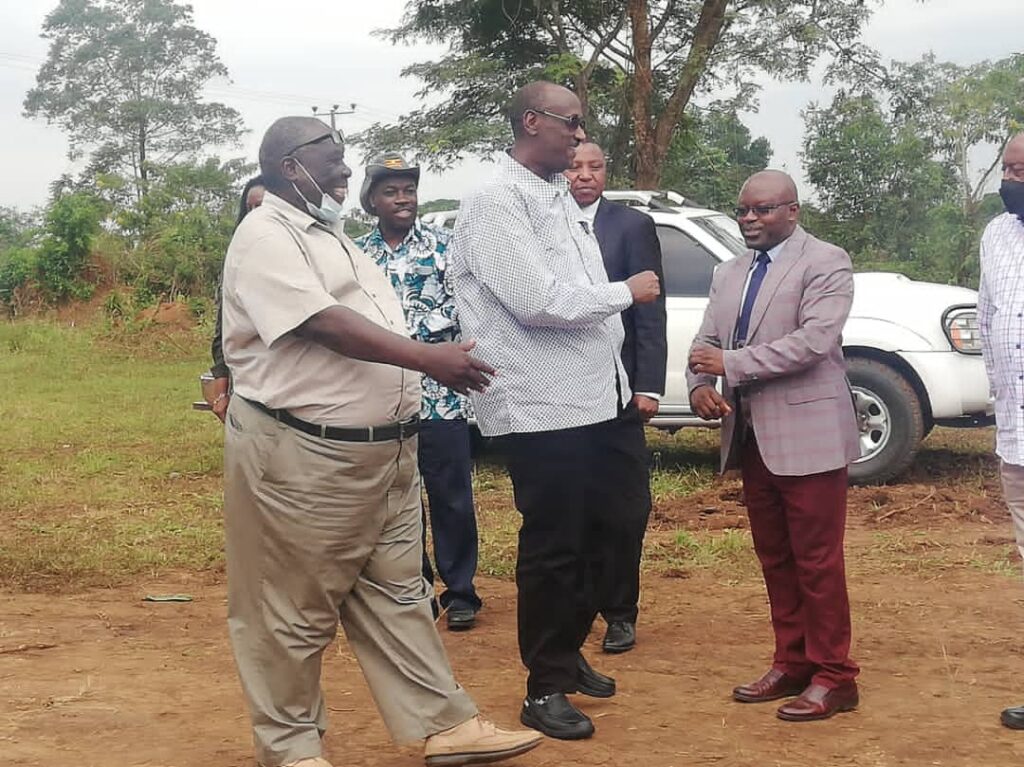Uganda Cooperative Alliance (UCA) together with other cooperatives has asked the government to revive over 200 value addition facilities that are non-operation across the country.
According to Ivan Asiimwe, the General Secretary of UCA, only 40% (about 200 out 555) of the facilities are operational.
“The Government has so far invested around Sh200 billion in these facilities including milk processing plants, coffee, and rice hullers, and these funds cannot be left to waste,” he added.
During the launch of the strategic plan to revamp defunct processing facilities that was organized by General Salim Saleh, the Chief Coordinator of Operation Wealth Creation in Kapeeka, Members of Cooperatives cited a number of challenges including insufficient funds to run the factories, exorbitant electricity tariffs, and incompetent human resource among others.
General Salim Saleh revealed that instead of cooperative members supplying their coffee products to Cooperative facilities, they opt for private players thus leaving their factories non-operational.
According to Cooperative members, the cooperatives don’t have enough money to absorb the coffee that is supplied by out growers to the facilities.
“Cooperatives want to be supplied on debt and yet farmers have immediate financial needs including school fees, medication, and others. In the end, the farmers take their coffee to private processors who readily have cash to pay them,” said Kaiza, a private coffee processing operator.
According to Laurence Kibirige, the area LC3 Chairperson and coffee farmer, mainly the coffee processing facilities are nonfunctional because few receive produce to process and thus lie idle for a long time. “The challenge is most facilities operate with capital of less than Sh 200million and that’s so little as a lot of coffee is produced in the area,” he said.
Kibirige added, “We still have a challenge of transportation as coffee is transported on boda bodas that can’t carry more than 300kgs due to poor road network. Electricity is another big problem as Umeme connives with private operators to install meters that are tampered with. All these issues make operational costs unbearable for cooperatives.”
“Additionally, it takes a long time to produce coffee, and when a farmer has gone through all the challenges and you are telling them to supply coffee on a debt when they have immediate financial needs becomes unrealistic,” he added.
According to the District LC5 Councilor, Sam Kakambwe, the government needs to extend power to the areas that lack it. Cooperative facilities need power on industry tariffs not commercial tariffs like we are being charged. You find just one facility with an electric bill of over Sh30 million, this is not economical,” he said.
“So, the profitability is cut by high power tariffs, transportation costs, high prices for inputs, all which with government political will can be solved,” added Kakambwe.
General Saleh donated Sh100 million to Kirema Cooperative in Kapeeka and said that Government has done its work. “For 20 years I have failed to understand why Cooperatives that benefit the majority of the people don’t perform well yet private players are thriving.”
“Government has done its work but middlemen are continuing to exploit farmers but enough is enough. We all know cooperatives is the answer and we shall ensure that they are revived,” he said. “A lot of investment is needed in the governance of Cooperatives as most of them are formed to take advantage of the money government provides with no strong future prospects,” he added.
Commenting on the challenge resources, Ms. Geraldine Ssali, the Permanent Secretary Ministry of Trade, Industry and Cooperatives said agriculture credit is still high and yet the sector can’t go beyond 6 percent.
“Most agriculture loan facilities are double-digit and this is very high for the sector. We need a Cooperative bank that understands the sector’s needs,” she said.
According to Ssali, stakeholders in the agriculture sector need preferential rates on financing, and electricity tariffs to be able to reduce the cost of doing business as risks are higher.
Asiimwe added that there is need for funding activities of the Cooperatives. Capacitate our operations by putting money into UCA. “The Government plans for Cooperatives are good, however, nothing can go forward without resources,” he added

